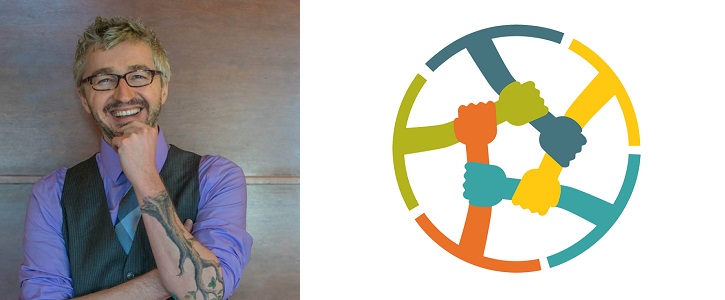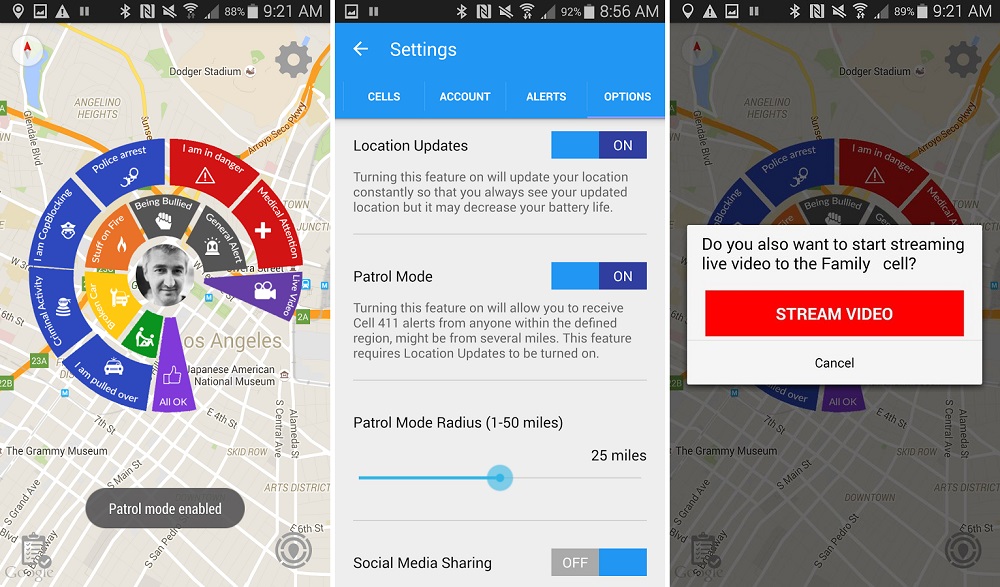User-driven apps have radically changed multiple industries, from ride sharing (Uber, Arcade City) to navigation (Waze), temporary housing (AirBnB), to business listing and review (Yelp). Decentralized defense and emergency response are the next logical step in the peer-to-peer revolution. After the much-touted Peacekeeper failed to produce a workable app, Cell 411 burst on to the scene with an app that works as an emergency dispatch service with a potential response efficiency far surpassing that of law enforcement.
Cointelegraph spoke with the crypto-anarchist, activist and journalist Virgil Vǎduva about decentralized emergency response applications and their role in changing the future of governance and security.
Cointelegraph: What originally prompted the creation of Cell 411?
Virgil Vǎduva: As a crypto-anarchist interested in the topic of the police state here in the U.S., the issue of police accountability has become very important to me. So it was from early discussions at libertarian conferences and meetings with people who already had great ideas about building similar apps that prompted me to think about building something similar and hopefully better.
Decentralized Security For All
CT: Is there a typical user you had in mind? Is there one now?
VV: A typical user would be an activist who is involved in street activism and had interactions with police on a regular basis, or a stay at home mom who wants to know when her children are being assaulted at school or even a group of neighborhood watchers who team up to essentially crowd-source the security and safety of their neighborhood. Everyone could be a typical user of Cell 411 because everyone is ultimately concerned with their personal safety or the well-being of their communities.
CT: What made you decide to make it decentralized?
VV: This is an interesting question because the word "de-centralized" can mean different things to different people. No, this is not an app that runs on any sort of "blockchain" type of infrastructure so from that perspective it is not decentralized, but it is a decentralized logical implementation of cells that are independently managed by users without any central oversight or control on their choices. This decision was made in order to allow users to manage their own lives and emergencies that may come their way without any oversight from some central authority. Users do not have to ask for permission in order to build their own independent cells and call upon each other for help, whatever type of help that may be.
CT: Why haven't you made it open-source? Is this something you would consider down the road?
VV: It's very simple: because I have a very clear vision of what this project should be and I want to see that vision through to the end. This is not an anti-police app or some social justice warrior project that will allow a limited number of nice activists to undermine the status quo. Instead, as ambitious as it sounds, this is a project that is aimed at solving the issue of safety in the lives of every human being out there, regardless of skin color, country or uniform they may be wearing. It is too early in the life of this project to even discuss open sourcing it, not only that, but the current architecture of the platform would make an open source fork difficult to implement due to dependencies we have in place with hosting and wireless providers.

Help not Undermine
CT: Some critics say you are undermining law enforcement. Is this true?
VV: Not at all, the app is meant to help law enforcement, not undermine them. Since the release of the app in August 2015, there have been tens of thousands of alerts sent out by Cel 411 users to their friends, neighbors and family members. These are all instances where police did not get called, and where law enforcement were able to focus on other, perhaps more pertinent emergencies. Furthermore, this also keeps our users safe by encouraging them to interact with police less, which reduces the risk of unnecessary escalation of force, or even shootings. These are positive aspects of this app for both police and also average citizens.
CT: Where has Cell 411 been most popular?
VV: Due to very high crime, Cell 411 has become almost an overnight sensation in South Africa, where thousands of users use it daily to keep each other safe. Every 25 minutes someone is killed in South Africa and the app can literally save someone's life. Farmers in SA have also contacted me about how the app is helping them organize themselves into self-policing communities due to the lack of police protection and corruption. The app has also become very popular in Western Europe and countries like Denmark, Sweden and the U.K. where several security firms are using it to dispatch guards in case of emergencies and cabbies are using it to keep each other safe. Of course, the app is popular in the U.S. as well where at least one volunteer fire department is using it as a means to dispatch each other in case help is needed, and thousands of activists are using it during protests and interactions with police.
The Shifting Paradigm
CT: What's next for decentralized defense apps?
VV: I'm not sure what the future holds, but in many ways technology is becoming the way by which average people like you and me are letting the establishment know that their services are becoming obsolete and irrelevant. Disruptive market technologies that help shift the paradigm and help shift the power from the establishment and into the hands of users will continue to shape the future in a very positive way in my opinion. Look at how Uber redefined the ride-sharing paradigm or how crypto-currencies are reshaping the world of finance. I am hoping that Cell 411 will be a small piece of that force that will move the world towards a better and safe future without appealing to the violence of the State.

